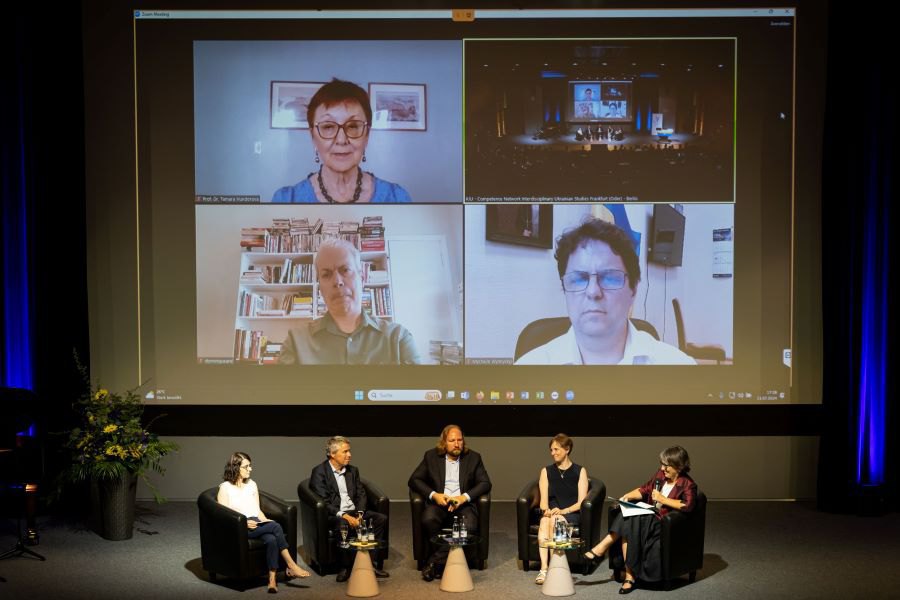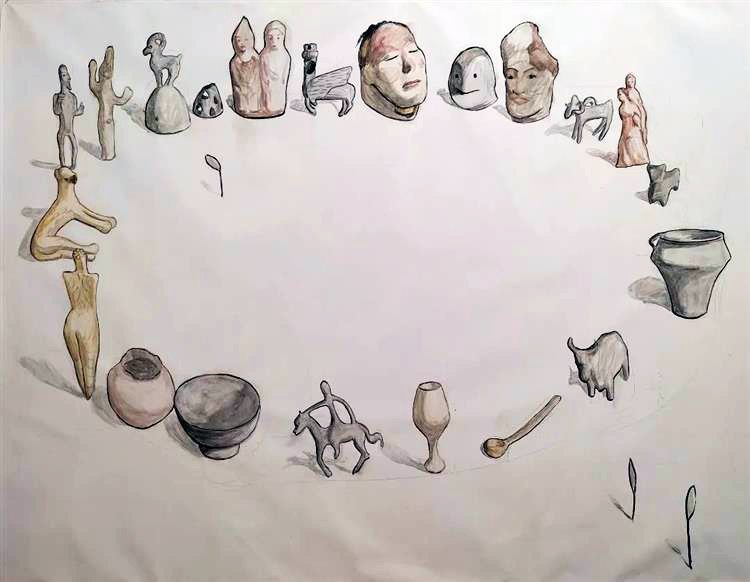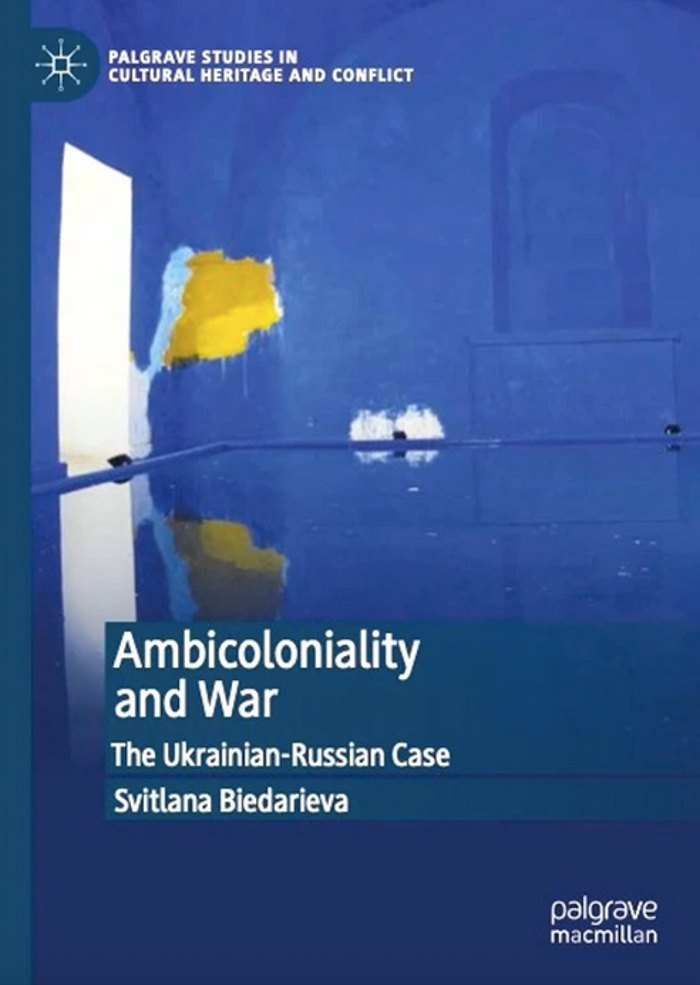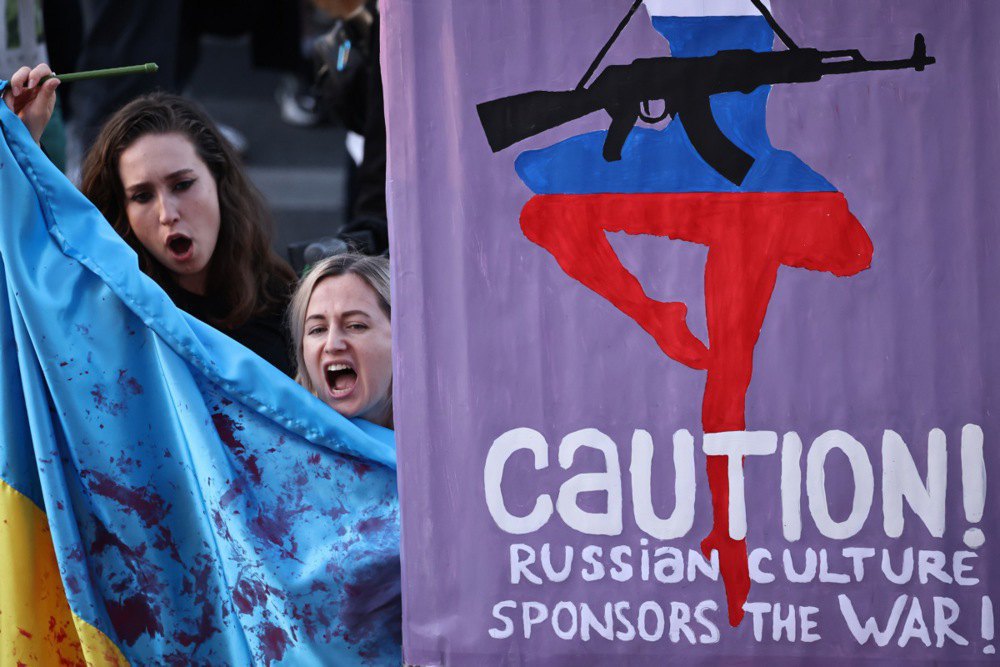Over the past three years, Ukraine’s influence in academic and cultural spheres has steadily expanded. The “blank spots” that emerged as a result of the active suppression of Ukrainian themes from the global intellectual space during the Soviet era – and the lack of resources and experience to develop these themes in the post-Soviet period – are gradually being filled.
The efforts of the academic community to support Ukraine, despite resistance from parts of the Western academic system (such as in the United States, where academic frameworks are still largely shaped by Cold War perspectives), have ensured that by 2025 Ukraine no longer “falls through the cracks” of Western institutional discourse. Interest in Ukrainian society, resilience and culture is now genuine, rather than based on fleeting sensationalism.

Several programmes have been established, mainly in Central and Eastern Europe. Among them are the Competence Network Interdisciplinary Ukrainian Studies Frankfurt (Oder) – Berlin (KIU), the Centre for Interdisciplinary Ukrainian Studies Denkraum Ukraine at the University of Regensburg, and the Invisible University at the Central European University in Budapest. Numerous conferences and workshops have also been devoted to Ukrainian topics.
The results are now evident: many Western scholars have turned their attention to Ukraine and are gradually seeking to rid themselves of entrenched imperial clichés. This is not a challenge that can be overcome overnight, as such clichés were shaped by decades of academic programmes focused on the Soviet Union and Eastern Europe. Yet many researchers who previously concentrated on Russia have begun developing new syllabuses that include or prioritise Ukrainian themes; some colleagues have even undertaken the study of the Ukrainian language. It is clear that Ukraine’s visibility in global intellectual discourse has become a lasting achievement – one that will provide a foundation for future programmes and publications.
The perception of Ukraine worldwide has also changed, owing to the relentless advocacy of numerous Ukrainians forcibly displaced by the war, as well as the genuine interest of scholars in European and American academic communities in supporting Ukrainian topics. Non-institutional, independent initiatives have played a vital role in this process, as they allow for autonomous interpretation of issues, help overcome academic inertia and biases, and foster a truly dynamic, polyphonic conversation.

For example, the Ukraine Decolonial Studies Network was established in August 2022 and now brings together more than 800 scholars. Its aim is to expand research on Ukraine from a postcolonial perspective and to critically assess the unreflective use of the terms colonial/postcolonial/decolonial, which have recently been applied to Ukraine by both media and institutions. Membership of the network is free of charge in 2025, and participants are preparing a comprehensive programme of events for 2025–2026. The Ukrainian Decolonial Studies Network seeks to transform the positioning of topics related to Ukraine’s separation from historical colonial narratives and its active resistance to Russian neocolonialism, elevating them to a new, global level of intellectual discussion and academic methodology in teaching and research.
I am a member of the executive board of the Ukrainian Decolonial Studies Network, and my own research proposes a rethinking of terminology, taking into account that the Ukrainian case exists “between” the Eastern and Western contexts – outside the conceptual frameworks proposed by postcolonial and decolonial theory. Ukraine represents another type of colonialism that has historically unfolded on its territory – Russian colonialism, based not only on the long-term extraction of resources and appropriation of Ukrainian achievements, but also on an imagined cultural proximity, cemented as a fundamental myth by Russian neocolonial propaganda.
My new book, Ambicoloniality and War: The Ukrainian-Russian Case, was published by Palgrave Macmillan in 2025. It examines this colonial “closeness” and its culmination in military aggression through the concept of “ambicoloniality.” The book has already received favourable reviews from renowned scholars such as Serhiy Plokhiy and Slavoj Žižek. I am now exploring the possibility of translating the work into Ukrainian in collaboration with a domestic publishing house – a step of great importance to me, as I want to “root” the text and receive feedback from Ukrainian readers.

In general, multifaceted, intercultural and interdisciplinary studies of Ukraine still need to be integrated into larger institutional structures – not only in Europe but also worldwide. The first steps in this direction have already been taken, thanks to the consolidated work of Ukrainian scholars and institutions. Today, global studies of Ukraine can serve as a space for safe, unbiased discussion, where multiple perspectives are welcomed (provided they do not support the Russian agenda). Most importantly, professional research on Ukraine is steadily expanding across the globe. Within this process, global studies of Ukraine – with their plurality and cross-culturalism – have the potential to become an outpost of objectivity and detachment essential for academic work. The task of Ukrainian scholars is to safeguard academia’s access to open discussion and ultimately to lead it, as is already happening.
In Ukraine, the expansion and development of institutional networks and centres of cultural and intellectual production is a necessary and inevitable process that has been under way since 2014. However, with the growing fatigue of war, this exchange and broadening of horizons has begun to slow over the past two years. It is increasingly undermined by a defensive stance and a lack of public trust – both consequences of the ongoing war and a legacy of Soviet thinking. In my view, as of 2025, institutional gatekeeping in Ukraine is stronger than at any point in the last decade – a paradox, given that the current situation requires the consolidation of efforts, deeper cooperation and, above all, confidence in one’s own strengths and potential.
Ukrainian scholars still need to learn to address Western academia from a position of authority, drawing on the epistemic weight of their unique experience of resisting social injustice and military invasion, as well as their expertise in cultural and scientific production during wartime. This will also enable them to embrace diversity of perspectives without feeling threatened in their own status quo. Ukrainian experience, once properly analysed and interpreted, can serve as a valuable resource for Western academia and for institutions in the Global South. It is crucial not only to preserve the momentum for transformation generated by Ukraine’s resistance to Russia in 2022, but also to share this momentum with those who need it in order to combat epistemic and systemic violence. Such exchange must be reciprocal.

Collaboration with countries beyond Europe and North America continues, though it is still largely based on individual initiatives and receives limited support from diplomatic institutions. Nevertheless, compared with 2014, the situation has improved significantly, thanks in part to the work of embassies and the Ukrainian Institute – which, for example, recently published a decolonial guide for international museum professionals, to which I had the honour of contributing. When asked why parallels should be drawn with Latin America – a region central to my own research – the answer is clear: by overlooking these countries, we risk excluding a powerful ally. Such an ally is not only able to respond empathetically to our historical wounds (if they are properly presented and explained), but can also share knowledge of anti-colonial resistance, as well as provide material resources, human capital and political support. This is especially significant in the current climate of uncertainty, marked by Donald Trump’s return to power in the United States and the country’s rapid shift towards authoritarianism. The wall of misunderstanding between Ukraine, often viewed as part of the “Global North,” and the “Global South” has yet to be dismantled, although progress is slowly being made.
Two essential strengths still need to be cultivated for Ukraine’s integration into global studies: vision (for the future) and acceptance of diversity (in the present). A society at war faces many challenges – chief among them uncertainty, fatigue and internal negative processes such as (self-)censorship. These must be overcome by every possible means, for unity, mutual understanding and dialogue with potential intellectual allies are the keys to renewal, to the creation of new sustainable ties, and to the further development of institutions.








